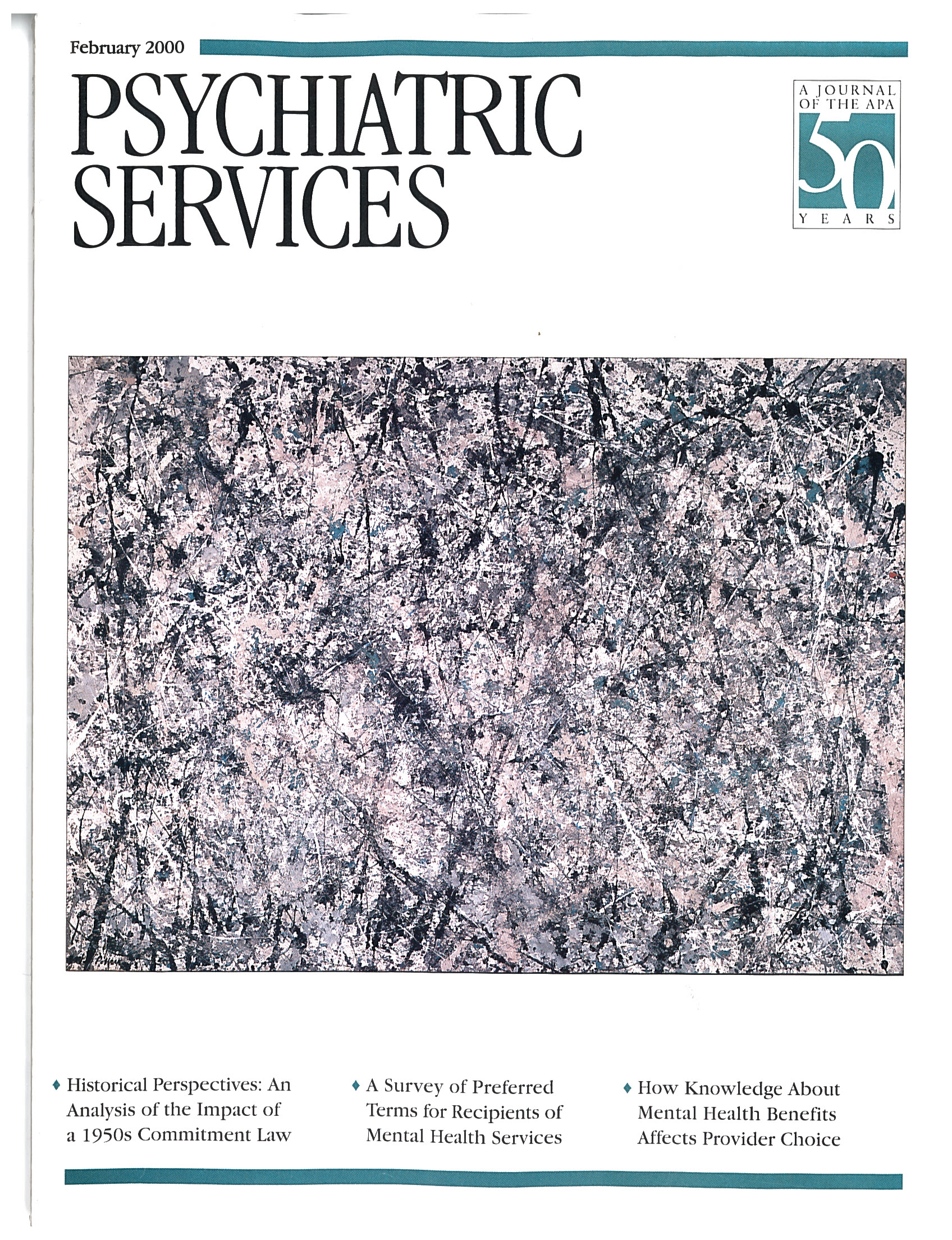Preferred Terms for Users of Mental Health Services Among Service Providers and Recipients
Abstract
OBJECTIVE: The terms used to refer to recipients of psychiatric services continue to be controversial. Terms in current use include "patient," "client," "consumer," and "survivor." In this study mental health service recipients and providers were surveyed about their preferences among these terms, and responses were analyzed to identify factors associated with various preferences. METHODS: A total of 550 service providers and 427 recipients at four sites in Ontario—two provincial psychiatric hospitals, a private mental health center, and a psychiatric unit of a general hospital—participated in a brief anonymous survey. RESULTS: Among service providers, 68.4 percent preferred the term "patient," 26.5 percent preferred "client," and .5 percent preferred "consumer." Logistic regression analysis showed that service providers' preferences were associated with age and gender. Among service recipients, 54.8 percent preferred the term "patient," 28.8 percent preferred "client," 7 percent preferred "survivor," and 2.8 percent preferred "consumer." Service recipients' preferences were associated with site, self-reported diagnosis, and employment status. Conclusion: The study results indicate lack of universality in preferences for terms for users of mental health services and suggest the need for dialogue about preferred terms between service providers and recipients.



